
Find Help
More Items From Ergsy search
-

Is there any risk of using paracetamol outside of pregnancy with regard to autism?
Relevance: 100%
-

Is paracetamol linked to autism?
Relevance: 90%
-
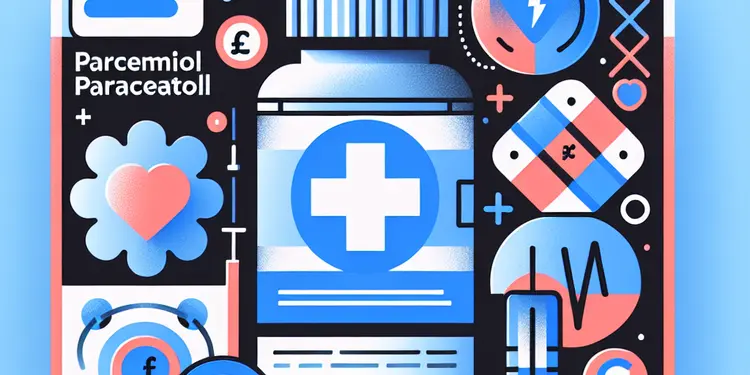
Why is there concern about paracetamol and autism?
Relevance: 82%
-

Is there any scientific evidence that links paracetamol use to autism?
Relevance: 80%
-

What can cause autism, if not paracetamol?
Relevance: 71%
-

Have any major health organizations advised against using paracetamol during pregnancy due to autism concerns?
Relevance: 53%
-

What causes autism?
Relevance: 53%
-

What are the limitations of studies examining paracetamol use and autism?
Relevance: 51%
-

Can Paracetamol be used in pregnant women?
Relevance: 50%
-

What should pregnant individuals consider when taking paracetamol?
Relevance: 48%
-

What advice is available for parents concerned about autism risks?
Relevance: 46%
-

What is Paracetamol?
Relevance: 46%
-
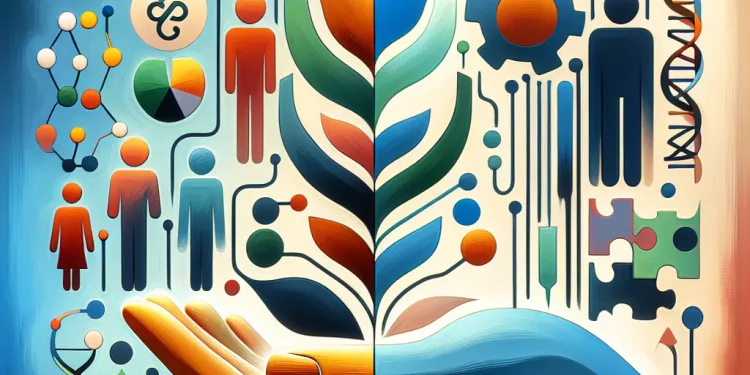
Is there a genetic component to autism?
Relevance: 46%
-

Has paracetamol been linked to other developmental issues besides autism?
Relevance: 45%
-

What is Paracetamol?
Relevance: 45%
-

How prevalent is the use of paracetamol during pregnancy?
Relevance: 45%
-
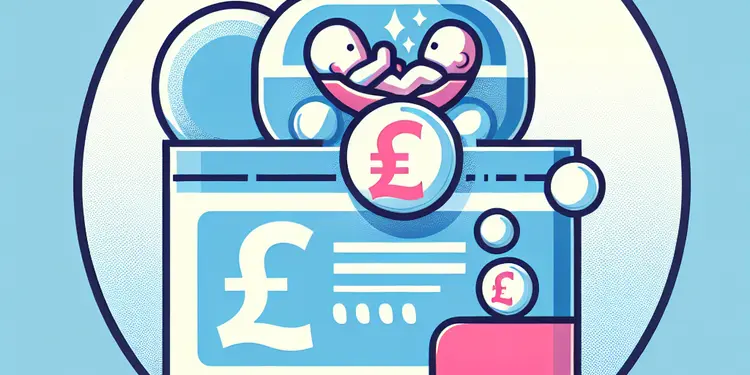
Have there been any recent changes in guidelines regarding paracetamol use and pregnancy?
Relevance: 43%
-

What is Autism?
Relevance: 42%
-
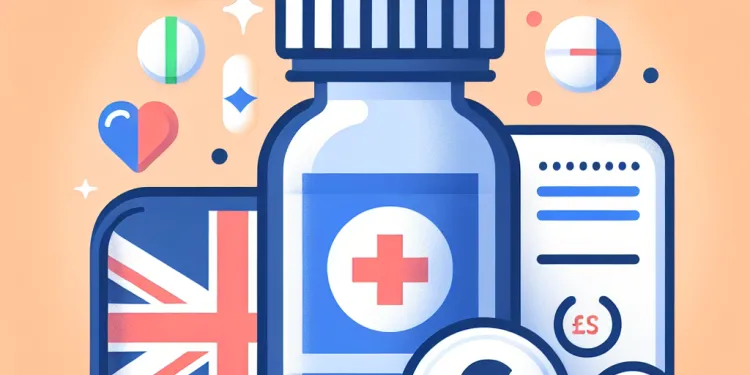
What are the side effects of Paracetamol?
Relevance: 41%
-

What kind of studies are conducted to investigate links between medications and autism?
Relevance: 41%
-

Is there an autism test?
Relevance: 41%
-
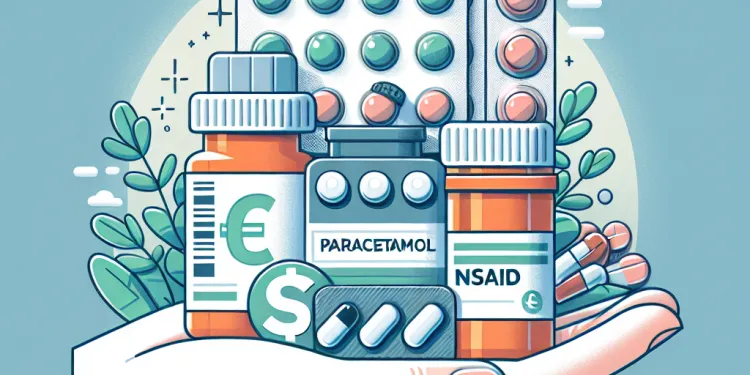
Why might someone choose Paracetamol over NSAIDs?
Relevance: 41%
-

Are vaccines linked to autism?
Relevance: 40%
-

How prevalent is autism?
Relevance: 39%
-

Is Paracetamol the same as Aspirin?
Relevance: 39%
-

What is the autism spectrum?
Relevance: 39%
-

Can autism be cured?
Relevance: 39%
-

What is a common use of paracetamol?
Relevance: 39%
-

What are the signs of autism?
Relevance: 39%
-

How is autism diagnosed?
Relevance: 38%
-

Can adults have autism?
Relevance: 38%
-

Is it safe to take Paracetamol with Ibuprofen?
Relevance: 38%
-

How can the risks and benefits of medications during pregnancy be assessed?
Relevance: 38%
-

Which one is better for headaches: Aspirin or Paracetamol?
Relevance: 38%
-

Does Paracetamol reduce inflammation?
Relevance: 38%
-

Autism: Graeme's story | NHS
Relevance: 37%
-

Autism - My Story - Rosalind | NHS
Relevance: 37%
-

What is the difference between Aspirin, Paracetamol, and Ibuprofen?
Relevance: 37%
-

Autism - My Story - Adrian | NHS
Relevance: 37%
-

Is autism more common in boys or girls?
Relevance: 36%
The Use of Paracetamol Outside of Pregnancy
Paracetamol, also known as acetaminophen, is one of the most commonly used over-the-counter medications for pain relief and fever reduction. In the UK, it is widely accepted as a safe and effective treatment when used appropriately. Taken according to the recommended dosage, paracetamol is a critical component in managing minor aches and illnesses.
Concerns Over Link Between Paracetamol and Autism
In recent years, there have been discussions in the scientific community and media about a potential connection between paracetamol usage and autism spectrum disorders (ASD). However, these discussions primarily focus on paracetamol use during pregnancy rather than any effects when used outside of this period. Some studies have hypothesized that paracetamol taken during pregnancy could affect fetal brain development, potentially leading to an increased risk of ASD. However, it is crucial to emphasize that these studies are still inconclusive and a subject of ongoing research.
Paracetamol Use Outside Pregnancy and Autism Risk
When it comes to paracetamol use outside of pregnancy, there is currently no substantial evidence linking its intake to the development of autism spectrum disorders in children or adults. Scientific investigations have predominantly focused on prenatal exposure to paracetamol, leaving postnatal or adult consumption largely unexamined in relation to autism risk.
The prevailing scientific consensus is that paracetamol, when used responsibly and in accordance with medical guidance, does not pose an increased risk for autism spectrum disorders. For individuals outside of pregnancy, the major concerns relate to ensuring that paracetamol is taken in safe dosages to avoid potential toxicity, particularly concerning liver health. Overuse or overdose can lead to serious health issues, but this is unrelated to autism development.
Conclusion
In conclusion, while there is some research involving prenatal paracetamol exposure and potential risk factors for autism, such concerns do not extend to paracetamol use outside of pregnancy. For the general population, paracetamol remains a well-tolerated and effective medication. As always, individuals are encouraged to adhere to dosing instructions and consult healthcare professionals if they have concerns regarding medication use. For any new mothers or those planning pregnancy, discussing all medications, including over-the-counter drugs like paracetamol, with a healthcare provider is advisable to ensure safety.
In the absence of conclusive evidence, the focus should remain on the responsible consumption of any medication. For those using paracetamol outside of pregnancy, there is no current scientific basis to associate it with any increased risk of autism spectrum disorders.
The Use of Paracetamol When Not Pregnant
Paracetamol, also called acetaminophen, is a common medicine you can buy in stores. It helps with pain and fever. In the UK, lots of people use it because it is safe and works well. If you take the right amount, paracetamol can help with small pains and feeling unwell.
Questions About Paracetamol and Autism
Recently, scientists and news stories have talked about if taking paracetamol might be linked to autism. Most of these talks are about taking paracetamol during pregnancy, not when you are not pregnant. Some studies think that taking it while pregnant might affect the baby's brain, possibly leading to autism. But these studies are not sure yet, so scientists are still looking into it.
Paracetamol Use When Not Pregnant and Autism Risk
If you use paracetamol when you are not pregnant, there is no strong proof that it causes autism in children or adults. Most research looks at taking it before a baby is born, not after. Scientists mostly agree that if you use paracetamol carefully and follow the advice, it does not increase the risk of autism. The main thing is to make sure you take the right amount to be safe, as too much can hurt your liver, but this is not related to autism.
Conclusion
To sum up, while some research has looked at taking paracetamol during pregnancy and autism, these worries do not apply to using it when not pregnant. Paracetamol is still a safe and good medicine for most people. It is important to follow the instructions and talk to a doctor if you are unsure about using any medicine. If you are a new mom or planning to become pregnant, it is a good idea to talk to a doctor about all medicines, even ones you buy in stores like paracetamol, to stay safe.
Since there is no clear proof yet, the most important thing is to use medicine, like paracetamol, responsibly. If you are not pregnant, there is no reason to think paracetamol increases the chance of autism.
Frequently Asked Questions
What is paracetamol?
Paracetamol, also known as acetaminophen, is a medication used to treat pain and fever.
What is autism?
Autism, or autism spectrum disorder (ASD), is a developmental disorder that affects communication and behavior.
Is there a known link between autism and paracetamol use?
There is no conclusive scientific evidence establishing a direct link between autism and paracetamol use.
Has research been conducted on the effects of paracetamol use outside of pregnancy?
Most studies focus on prenatal exposure. Research on the effects of paracetamol use outside of pregnancy on autism risk is limited.
Can adults develop autism by taking paracetamol?
No, autism is a developmental disorder that typically becomes apparent in early childhood, not something acquired in adulthood.
Is paracetamol safe for children?
Paracetamol is considered safe for children when used as directed, but concerns about high doses or long-term use should be discussed with a healthcare professional.
What are the typical side effects of paracetamol?
Common side effects of paracetamol include nausea and rash. Severe side effects are rare but can include liver damage.
What should you do if you're concerned about medication and autism risk?
If you have concerns about medication and autism risk, it's important to consult with a healthcare professional for personalized advice.
Are there safer alternatives to paracetamol?
Alternatives to paracetamol include non-steroidal anti-inflammatory drugs (NSAIDs), though they come with their own risks. A doctor can recommend the best option based on individual needs.
What is the safe dosage for paracetamol?
The typical maximum dose for adults is 1 gram per dose and 4 grams per day. Always follow the dosing instructions on the package or provided by a healthcare professional.
How common is autism?
According to the CDC, about 1 in 54 children has been identified with autism spectrum disorder in the United States.
What factors are associated with autism?
Autism is associated with genetic and environmental factors, but the exact causes are not fully understood.
Is it safe to use paracetamol during pregnancy?
Although paracetamol is commonly used during pregnancy, it should be used under medical advice, especially considering ongoing research into its safety.
What should you do in case of a paracetamol overdose?
In case of a suspected paracetamol overdose, seek emergency medical help immediately as it can be life-threatening.
Is paracetamol an opioid?
No, paracetamol is not an opioid. It is classified as an analgesic (painkiller) and antipyretic (fever reducer).
Can paracetamol cause liver damage?
Yes, in high doses or with chronic use, paracetamol can cause liver damage, which is why it's important to adhere to recommended doses.
Is paracetamol addictive?
Paracetamol is not considered addictive when used as directed.
What are the symptoms of paracetamol overdose?
Symptoms of paracetamol overdose can include nausea, vomiting, sweating, and pain in the upper right side of the abdomen.
Are there strategies for managing fever without medication?
Non-medicinal strategies for managing fever include hydration, rest, and using a cool compress.
Why is paracetamol frequently used?
Paracetamol is often used because it's effective for pain relief and fever reduction, is generally safe when used correctly, and has fewer side effects compared to some other pain relief medications.
What is paracetamol?
Paracetamol is a type of medicine. It helps when you have pain or a fever. You can take paracetamol when you have a headache or if you feel hot.
Here are some tips to help you understand:
- Ask an adult if you have questions about paracetamol.
- Use pictures to help you remember when to take it.
- Set a timer to remind you when to take your next dose.
- There are apps that can help you manage your medicine.
Paracetamol is a medicine. It is also called acetaminophen. People use it to help with pain and to reduce fever.
What is autism?
Autism is a different way of thinking and feeling. People with autism might find it hard to talk or play with others. They might like doing the same thing over and over. Everyone with autism is unique.
Here are some ways to help understand autism better:
- Use pictures and videos to learn about autism.
- Talk with someone who knows a lot about autism.
- Read books with simple words about autism.
Autism is a condition that makes talking and behaving different. It is also called autism spectrum disorder (ASD).
Does paracetamol cause autism?
Some people wonder if taking paracetamol can cause autism. Scientists are studying this, but they are not sure yet.
If you have questions, ask a doctor. They can help you understand. You can also use pictures, videos, or ask someone to read to you.
Scientists have not found any clear proof that taking paracetamol causes autism.
Have scientists studied how paracetamol affects people who are not pregnant?
Scientists study to learn new things. They have looked at how paracetamol affects people who are not pregnant.
This means they want to know what happens when people take paracetamol if they are not having a baby.
You can use tools like audiobooks or text-to-speech apps to help you understand better.
Most studies look at how medicines affect a baby before it is born. We don't know much about how taking paracetamol when you're not pregnant might change the chance of autism.
Can grown-ups get autism from taking paracetamol?
No, grown-ups can't get autism from taking paracetamol.
Autism is something people are born with. It doesn't start from taking medicine like paracetamol.
If you’re worried, it might help to talk to a doctor or someone you trust about it.
No, autism is a condition that starts when you are young. It does not happen when you are grown up.
Can children take paracetamol safely?
Paracetamol is a medicine that helps with pain and fever. Many people want to know if it is okay for children to use.
Here are some helpful tips:
- Paracetamol is usually safe for children, but it should be given in the right amount (this is called the "dose").
- Always check the label or talk to a doctor or pharmacist to know how much to give your child.
- Use a measuring spoon or cup that comes with the medicine to make sure you give the correct amount.
- Never give adult paracetamol to a child. It could be too strong.
If you are not sure, it's always a good idea to ask a doctor or pharmacist for help.
Paracetamol is safe for kids if you follow the directions. But, if you are worried about giving too much or using it for a long time, talk to a doctor.
If you need help, you can use tools like pictures or simple storybooks to understand more.
What are the usual effects of taking paracetamol?
When you take paracetamol, sometimes you might feel:
- A bit sick (like you want to throw up)
- A tummy ache
- A headache
- A rash on your skin
If you feel worried, you can talk to an adult or a doctor. Always read the label on the medicine. Use a tool like a dictionary to help with hard words or ask someone to explain them to you.
Paracetamol can sometimes make you feel sick or cause a skin rash. Very serious side effects are not common, but it can hurt your liver.
What to do if you are worried about medicine and autism
If you are worried about medicine and autism, talk to a doctor or nurse. They can give you personal advice that is just for you.
Are there safer choices instead of paracetamol?
Instead of taking paracetamol, you can take different medicine called NSAIDs. But these medicines can have their own problems. A doctor can help you choose the best medicine for you.
How much paracetamol is safe to take?
Paracetamol is a medicine that helps with pain and fever.
It is important to take the right amount so it is safe and works well.
Here are some tips to help:
- Read the label on the bottle or box.
- Ask an adult if you are not sure.
- Use a spoon or tool that shows the right amount.
- Do not take more than the label says. Taking too much can be harmful.
The most you should take at one time is 1 gram. In one day, don't take more than 4 grams. Always listen to the directions on the package or what your doctor says.
How many people have autism?
Autism means a person’s brain works differently. It is okay to be different!How often do people have autism?
1. Autism is not rare. Many people have it. 2. Around 1 in 36 children have autism. That is a lot of people.Helpful tips:
- **Pictures and videos**: Use pictures or videos to learn more. They can help you understand better. - **Ask questions**: If you do not understand something, ask a teacher or an adult for help. - **Simple words**: Try to use simple words when reading or talking about autism.The CDC says that 1 out of every 54 children in the United States has autism.
What causes autism?
Autism can be caused by different things. Some children have autism because of:
- Genes: This is how our bodies are made. If someone in the family has autism, another family member might have it too.
- Environment: Things around us can sometimes affect our bodies. This could include things like pollution.
If you want to learn more or need help, you can use pictures or videos. Talking to someone who knows about autism can also help.
We don't know exactly what causes autism. It may be linked to genes and things around us, like our environment.
Can you take paracetamol when you are pregnant?
If you are pregnant, it is usually okay to take paracetamol.
But always ask your doctor first to make sure it is safe for you and your baby.
You can also talk to a nurse or pharmacist if you need more help.
Paracetamol is a medicine that many pregnant people use. But it's important to talk to a doctor before taking it because we are still learning about how safe it is during pregnancy.
What to do if you take too much paracetamol?
If you think someone has taken too much paracetamol, get help right away. It's very important because it can be very dangerous.
Is paracetamol an opioid?
No, paracetamol is not an opioid. Paracetamol is a medicine used to help when you are in pain or have a fever. Opioids are a different type of medicine that helps with very strong pain.
Tips:
- Ask a grown-up or doctor if you have any questions.
- Use pictures or diagrams to better understand medicines.
No, paracetamol is not an opioid. Paracetamol is a kind of medicine that helps with pain. It can also bring down a fever when you are sick.
Does paracetamol hurt the liver?
Paracetamol is a medicine that helps with pain and fever. But if you take too much, it can make your liver sick.
Always follow the doctor's advice or the instructions on the medicine pack.
Tips to stay safe:
- Ask an adult if you don’t understand the label.
- Use a medicine spoon or cup to get the right amount.
- Set reminders for when to take your medicine.
Yes, taking a lot of paracetamol or using it for a long time can hurt your liver. This is why it's important to take the right amount.
Can you get addicted to paracetamol?
No, you cannot get addicted to paracetamol. It is safe when used correctly to help with pain and fever.
If you take too much, it can be harmful. Always follow the instructions on the packet or ask a doctor or nurse if you are unsure.
You can use tools like talking to a grown-up or using reminder apps to help you take the right amount.
Paracetamol is a medicine you can take safely. It does not make you want more and more, as long as you use it the right way.
What happens if you take too much paracetamol?
If you take too much paracetamol, you might feel sick, throw up, sweat a lot, or have a sore tummy on the right side at the top.
Here are some tips to help with reading:
- Read slowly and take your time.
- Use your finger to follow the words.
- Ask someone to read with you if it's hard.
- Try breaking the sentences into smaller parts.
Can you help a fever without using medicine?
There are ways to help with a fever without medicine. You can drink lots of water, get plenty of rest, and use a cool cloth on your forehead.
Why do people often use paracetamol?
Paracetamol is a medicine. People take it for pain or when they have a fever. It helps them feel better.
Helpful Tip: If you have trouble reading, you can use audiobooks or ask someone to read with you.
Paracetamol helps when you are in pain or have a fever. It works well and is usually safe if you follow the directions. It doesn’t cause as many problems as some other medicines.
Useful Links
Have you found an error, or do you have a link or some information you would like to share? Please let us know using the form below.
-->
This website offers general information and is not a substitute for professional advice.
Always seek guidance from qualified professionals.
If you have any medical concerns or need urgent help, contact a healthcare professional or emergency services immediately.
Some of this content was generated with AI assistance. We’ve done our best to keep it accurate, helpful, and human-friendly.
- Ergsy carfully checks the information in the videos we provide here.
- Videos shown by Youtube after a video has completed, have NOT been reviewed by ERGSY.
- To view, click the arrow in centre of video.
- Most of the videos you find here will have subtitles and/or closed captions available.
- You may need to turn these on, and choose your preferred language.
- Go to the video you'd like to watch.
- If closed captions (CC) are available, settings will be visible on the bottom right of the video player.
- To turn on Captions, click settings .
- To turn off Captions, click settings again.
More Items From Ergsy search
-

Is there any risk of using paracetamol outside of pregnancy with regard to autism?
Relevance: 100%
-

Is paracetamol linked to autism?
Relevance: 90%
-

Why is there concern about paracetamol and autism?
Relevance: 82%
-

Is there any scientific evidence that links paracetamol use to autism?
Relevance: 80%
-

What can cause autism, if not paracetamol?
Relevance: 71%
-

Have any major health organizations advised against using paracetamol during pregnancy due to autism concerns?
Relevance: 53%
-

What causes autism?
Relevance: 53%
-

What are the limitations of studies examining paracetamol use and autism?
Relevance: 51%
-

Can Paracetamol be used in pregnant women?
Relevance: 50%
-

What should pregnant individuals consider when taking paracetamol?
Relevance: 48%
-

What advice is available for parents concerned about autism risks?
Relevance: 46%
-

What is Paracetamol?
Relevance: 46%
-

Is there a genetic component to autism?
Relevance: 46%
-

Has paracetamol been linked to other developmental issues besides autism?
Relevance: 45%
-

What is Paracetamol?
Relevance: 45%
-

How prevalent is the use of paracetamol during pregnancy?
Relevance: 45%
-

Have there been any recent changes in guidelines regarding paracetamol use and pregnancy?
Relevance: 43%
-

What is Autism?
Relevance: 42%
-

What are the side effects of Paracetamol?
Relevance: 41%
-

What kind of studies are conducted to investigate links between medications and autism?
Relevance: 41%
-

Is there an autism test?
Relevance: 41%
-

Why might someone choose Paracetamol over NSAIDs?
Relevance: 41%
-

Are vaccines linked to autism?
Relevance: 40%
-

How prevalent is autism?
Relevance: 39%
-

Is Paracetamol the same as Aspirin?
Relevance: 39%
-

What is the autism spectrum?
Relevance: 39%
-

Can autism be cured?
Relevance: 39%
-

What is a common use of paracetamol?
Relevance: 39%
-

What are the signs of autism?
Relevance: 39%
-

How is autism diagnosed?
Relevance: 38%
-

Can adults have autism?
Relevance: 38%
-

Is it safe to take Paracetamol with Ibuprofen?
Relevance: 38%
-

How can the risks and benefits of medications during pregnancy be assessed?
Relevance: 38%
-

Which one is better for headaches: Aspirin or Paracetamol?
Relevance: 38%
-

Does Paracetamol reduce inflammation?
Relevance: 38%
-

Autism: Graeme's story | NHS
Relevance: 37%
-

Autism - My Story - Rosalind | NHS
Relevance: 37%
-

What is the difference between Aspirin, Paracetamol, and Ibuprofen?
Relevance: 37%
-

Autism - My Story - Adrian | NHS
Relevance: 37%
-

Is autism more common in boys or girls?
Relevance: 36%


